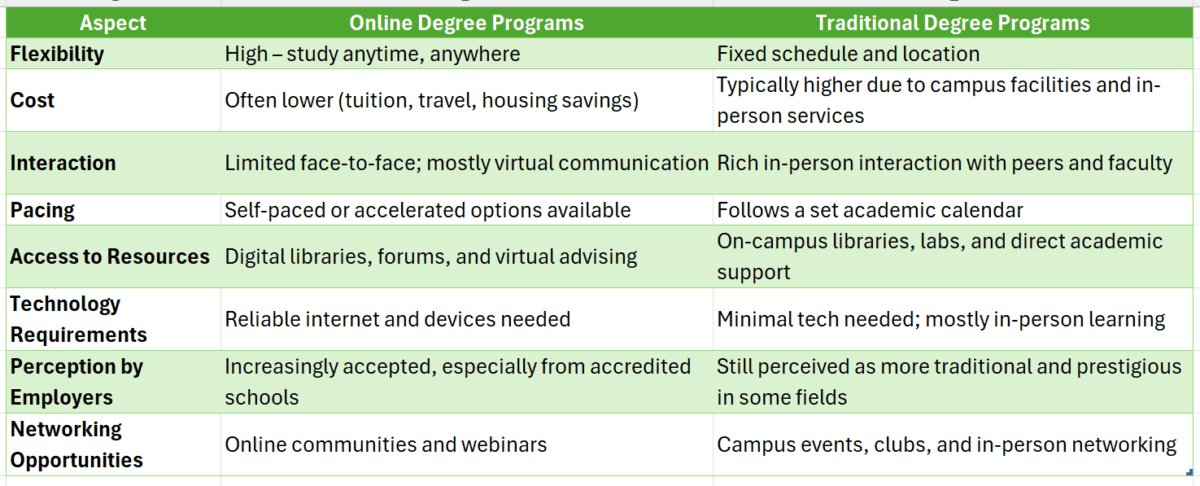
Understanding what degree you need to become a curriculum specialist degree is essential for anyone considering this rewarding career. A curriculum specialist plays a crucial role in shaping educational programs, ensuring that students receive the best possible learning experiences. But what qualifications do you need to step into this important position?
The Right Educational Path
To become a curriculum specialist, you typically need a curriculum specialist degree. This degree often focuses on instructional design curriculum, which teaches you how to create effective educational materials. Many universities offer specialized programs that prepare you for this role, combining theory with practical skills.
Additional Qualifications
While a degree is vital, other qualifications can enhance your expertise. Consider pursuing:
- Certifications in instructional design: These can boost your resume.
- Experience in teaching: Understanding classroom dynamics is invaluable.
- Advanced degrees: A master’s in instructional design higher education can open even more doors.
By following these steps, you can build a solid foundation for a successful career as a curriculum specialist.
Start your journey to a brighter future—Enroll now!
What Degree Do You Need to Become a Curriculum Specialist?
When considering a career as a curriculum specialist, understanding the educational requirements is crucial. This role is vital in shaping how students learn and ensuring that educational programs meet their needs. So, what degree do you need to become a curriculum specialist? Let’s dive into the details!
Essential Degrees for Curriculum Specialists
To become a curriculum specialist, you typically need at least a bachelor’s degree in education or a related field. However, many employers prefer candidates with a master’s degree in instructional design curriculum or educational leadership. This advanced education helps you develop the skills necessary for creating effective learning experiences.
Benefits of Higher Education
- In-depth Knowledge: A curriculum specialist degree provides a deeper understanding of instructional design higher education.
- Career Advancement: Higher degrees often lead to better job opportunities and higher salaries.
- Networking Opportunities: Graduate programs can connect you with professionals in the field, opening doors for collaboration and growth.
In summary, pursuing the right degree is essential for anyone looking to excel as a curriculum specialist. With the right educational background, you can make a significant impact on the future of education!
The Importance of Accreditation in Curriculum Specialist Degrees
When considering a career as a curriculum specialist, understanding the educational requirements is crucial. A curriculum specialist degree not only opens doors to various educational roles but also equips you with the skills to design effective learning experiences. This is where accreditation comes into play, ensuring that your degree meets industry standards.
Accreditation is like a stamp of approval for your degree. It guarantees that the program meets specific quality standards. Here’s why it matters:
- Quality Assurance: Accredited programs provide a solid foundation in instructional design curriculum, ensuring you learn the best practices in education.
- Career Opportunities: Many employers prefer candidates with degrees from accredited institutions, making your job search easier.
- Transferability: If you decide to further your education, an accredited degree is often recognized by other schools, especially in instructional design higher education.
In summary, choosing an accredited curriculum specialist degree is essential for your future. It not only enhances your knowledge but also boosts your employability. So, as you embark on this educational journey, remember that accreditation can make a significant difference in your career path.
Are There Specific Certifications for Curriculum Specialists?
When considering a career as a curriculum specialist, understanding the necessary qualifications is crucial. This role involves designing effective educational programs and ensuring they meet the needs of students and educators alike. So, what degree do you need to become a curriculum specialist? Let’s dive into the specifics!
To become a successful curriculum specialist, having the right degree is essential. Most positions require at least a master’s degree in education or a related field. Here are some common certifications that can enhance your qualifications:
- Curriculum Specialist Degree: This degree focuses on developing and implementing instructional strategies.
- Instructional Design Curriculum: This program teaches you how to create engaging learning experiences using technology and innovative teaching methods.
- Instructional Design Higher Education: Pursuing this path can open doors to advanced roles in educational institutions.
It emphasizes research and practical application in curriculum development. These certifications not only boost your resume but also equip you with the skills needed to excel in this dynamic field. So, if you’re passionate about education, consider these options to pave your way to becoming a curriculum specialist!
Exploring Online vs. Traditional Degree Programs

Choosing the right degree is crucial for aspiring curriculum specialists. This decision can shape your career and influence how effectively you design educational programs. So, what degree do you need to become a curriculum specialist? Let’s dive into the options available, especially focusing on online versus traditional degree programs.
Online Degree Programs
- Flexibility: Online programs allow you to study at your own pace, making it easier to balance work and life.
- Accessibility: You can access coursework from anywhere, which is perfect for busy professionals.
- Variety: Many institutions offer specialized curriculum specialist degrees online, focusing on instructional design curriculum.
Traditional Degree Programs
- Structured Learning: In-person classes provide a more structured environment, which some students prefer.
- Networking Opportunities: Attending classes on campus can help you connect with peers and professors in the field.
- Hands-On Experience: Traditional programs often include practical experiences that can enhance your learning.
Ultimately, whether you choose an online or traditional curriculum specialist degree, both paths can lead to a rewarding career in instructional design higher education. Consider your personal learning style and career goals to make the best choice for you.
Start your journey to a brighter future—Enroll now!
How Experience Influences Your Path to Becoming a Curriculum Specialist
Becoming a curriculum specialist is an exciting journey that shapes the future of education. But what degree do you need to embark on this path? Understanding the educational requirements is crucial, as they lay the foundation for your career in instructional design. Let’s explore how experience influences your path to becoming a curriculum specialist.
Educational Background Matters
To become a curriculum specialist, a relevant degree is essential. Most positions require at least a curriculum specialist degree in education or a related field. This degree provides the necessary knowledge in instructional design curriculum, helping you create effective learning experiences.
The Role of Experience
Experience plays a significant role in your development. Here’s how:
- Hands-on Learning: Working in classrooms or educational settings helps you understand real-world challenges.
- Networking Opportunities: Engaging with educators and professionals can open doors to mentorship and job opportunities.
- Skill Enhancement: Practical experience allows you to refine your skills in instructional design higher education, making you a more competitive candidate.
The Benefits of Advanced Degrees in Curriculum Development
Considering a career as a curriculum specialist? Understanding the educational requirements is essential. A curriculum specialist degree can unlock exciting opportunities in shaping educational programs. Let’s explore the benefits of pursuing advanced degrees in this field!
Enhanced Knowledge and Skills
An advanced degree in instructional design curriculum provides specialized knowledge. You’ll master effective teaching strategies, assessment methods, and how to create engaging learning experiences, which are invaluable in higher education.
Career Advancement Opportunities
A degree in instructional design higher education can significantly enhance your career prospects. Many schools prefer candidates with advanced degrees for curriculum specialist roles, preparing you for leadership positions in education.
Networking and Professional Growth
Advanced degrees connect you with a professional network, leading to mentorship opportunities and job openings. Building these relationships is crucial for success as a curriculum specialist.
Staying Current with Trends
In the fast-changing education landscape, staying updated is vital. Advanced degrees often cover the latest trends in instructional design, helping you create relevant curricula for today’s learners.
Increased Earning Potential
Lastly, a curriculum specialist degree can lead to higher salaries. Employers value advanced education and often offer competitive pay for specialized skills, making this investment worthwhile.
How DegreeOnline.Education Can Support Your Journey to Becoming a Curriculum Specialist
Becoming a curriculum specialist is an exciting journey! Understanding what degree you need is crucial because it sets the foundation for your career in education. This role involves designing effective instructional materials and ensuring that students receive the best learning experiences possible. So, how can DegreeOnline.Education support you on this path?
Choosing the Right Degree
To become a curriculum specialist, a relevant degree is essential. Many professionals pursue a curriculum specialist degree or a degree in instructional design curriculum. These programs teach you how to create engaging educational content and assess its effectiveness.
Gaining Practical Experience
Additionally, gaining hands-on experience in instructional design higher education is invaluable. Internships or volunteer opportunities can provide you with real-world insights and skills.
Continuous Learning
Finally, remember that education doesn’t stop after graduation! Staying updated with the latest trends in curriculum development is key. DegreeOnline.Education offers resources, workshops, and networking opportunities to help you grow and succeed in this rewarding field.
Start your journey to a brighter future—Enroll now!
FAQs
1. What is a curriculum specialist degree?
It’s a graduate-level degree (usually a Master’s or Ed.S.) that prepares educators to design, evaluate, and improve school curricula and instructional materials.
2. What does a curriculum specialist do?
They work with teachers, administrators, and school districts to develop effective lesson plans, align curriculum with standards, and enhance teaching strategies.
3. What are the common degree titles for this field?
Popular programs include Master of Education (M.Ed.) in Curriculum and Instruction or Educational Specialist (Ed.S.) in Curriculum Development.
4. Do I need teaching experience to enroll?
Yes, most programs require applicants to have a valid teaching license and 1–3 years of classroom experience.
5. How long does it take to complete the degree?
A master’s program usually takes 1.5 to 2 years of full-time study, while Ed.S. programs may take slightly longer.
6. What careers can I pursue with this degree?
Graduates often work as curriculum specialists, instructional coordinators, academic coaches, or district-level education consultants.




